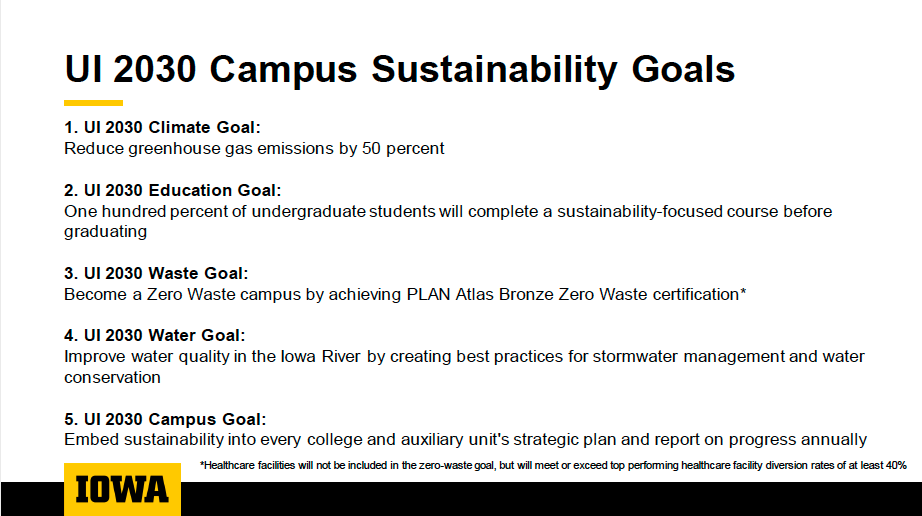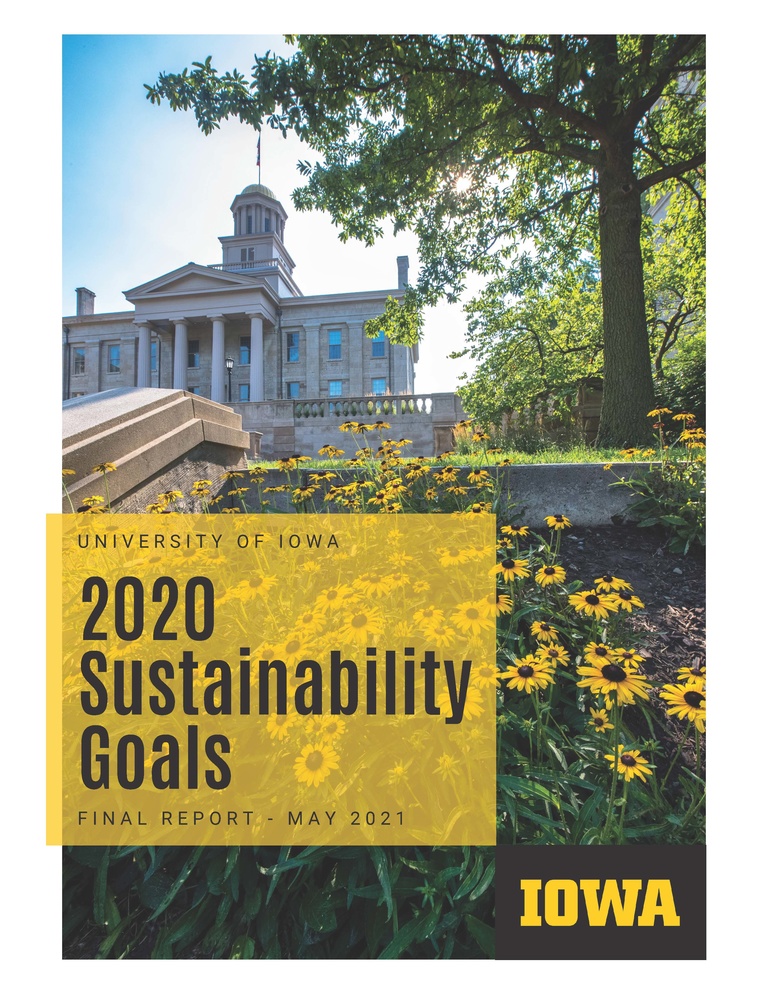“The most important issue of the 21st century.”
President Bruce Harreld on sustainability
"Sustainability must and will become a central priority of all aspects of our university enterprise—our operations, our academic mission, and our responsibilities to the greater society."
President Sally Mason, Earth Day 2008
UI 2030 Sustainability Goals
The five measurable target goals, drafted in concert with campus partners through the Shared Governance process, are listed here:

2020 Vision | Sustainability Goals Report
In her 2008 Earth Day speech, President Mason challenged the University community to integrate sustainability deeply into our learning, discovery, and outreach missions. The University of Iowa had set sustainability targets to be met on or before December 31, 2020.

Climate Change Teach-In — Earth Day 2021
The Sustainability Charter Committee organized a Climate Change Literacy Teach-In held virtually on Earth Day, April 22. Professor Jerry Schnoor, Civil and Environmental Engineering, provided a keynote address.

Looking Back at Iowa’s First Earth Day, 50 Years Later
In April 1970, UI students and faculty joined campuses around the nation to address an escalating crisis, writes Old Gold guest columnist Caroline Garske (18BA).
About the Sustainability Charter Committee (SCC)
Events
Interested in Sustainability on and off-Campus?
Frequently Asked Questions
Frequently Asked Questions
Where can I find UI Sustainability resources
Great question! The Office of Sustainability and the Environment serves as such a hub
I am a UI constituent interested in joining SCC. How would I do that?
Each spring the University of Iowa Staff Council Committee on Committees solicits applications to fill staff vacancies on University Charter and Non-Charter committees: watch your email!
Thank you for interest in helping the committee in its mission.
Help us add to this FAQ!
Contact us with any question you might have!